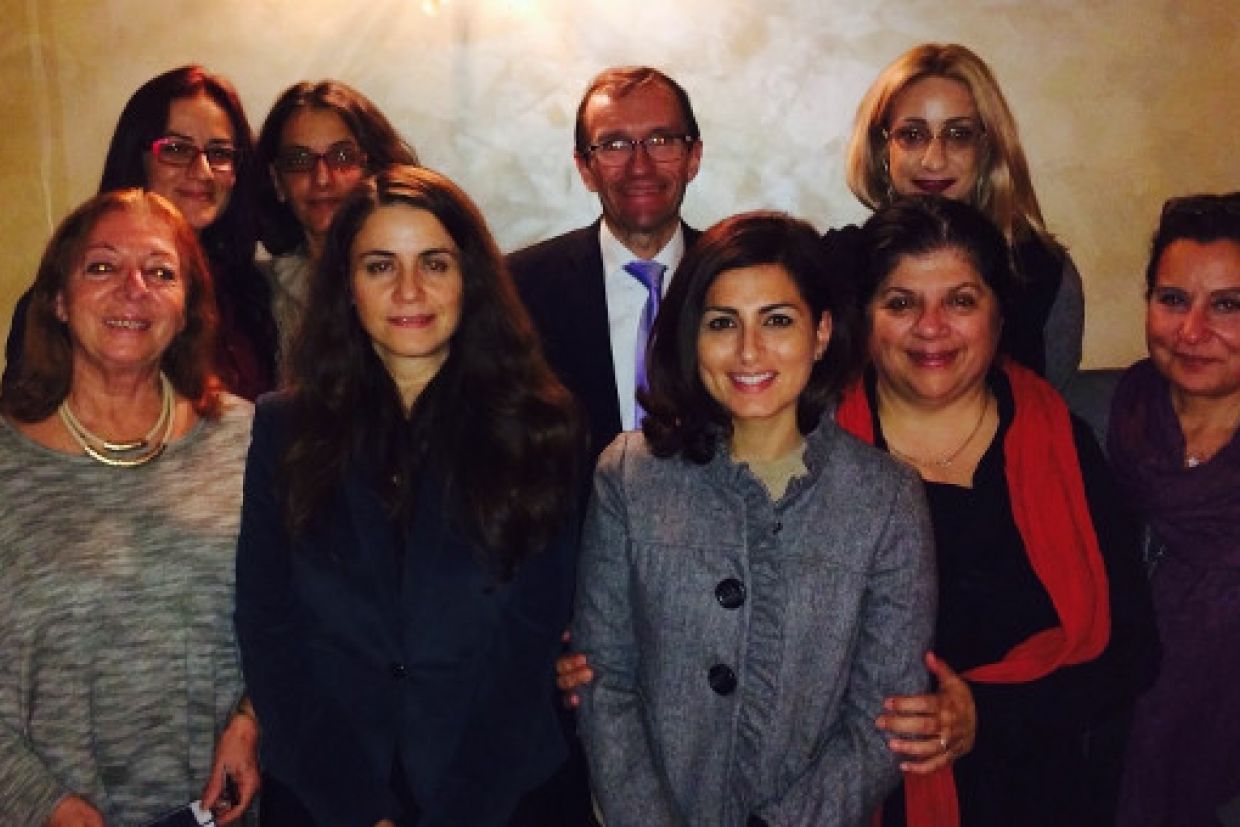Most people are not familiar with gender mainstreaming or the critical role it plays in international development work. But for Queen’s alumna Sophia Papastavrou Faustmann, MA’ 06, it’s all in a day’s work.
Gender mainstreaming is the practice of ensuring that the needs of women, men, boys and girls are adequately addressed in humanitarian projects, programming and policy. In her role as Gender Technical Lead with World Vision International MEER (the Middle East and Eastern Europe), Sophia assesses the implications for men and women of any planned action, program or funding proposal. Once an afterthought for many non-governmental organizations and other international charities, in recent years, donors and funders have pushed gender equality considerations to the forefront.
Sophia’s passion for social justice began well before she got to Queen’s but she credits the Sociology Department’s Master’s program for providing a safe and engaging space to explore interdisciplinary ideas. “Early in my introductory courses, we were exploring different theoretical perspectives, and concepts like privilege, migration, and identity politics. It was interesting to have complex conversations with a diverse group of students from such widely varied backgrounds,” explains Sophia.
Sophia’s background also has an influence on her work. She was born in Athens, Greece and raised in Ghana, West Africa by Cypriot parents before immigrating to Canada. Now living and working in Cyprus, Sophia is also working on her PhD research which focuses on women’s participation in the Cyprus peace talks.
Her dissertation, titled “Organizing for Peace: Women and Activism in Cyprus” is exploring the grassroots organizing efforts of women in Cyprus as part of the peace and reconciliation process. For the last 43 years, Cyprus has been engaged in an ongoing frozen conflict, known as the Cyprus Problem, which is the result of a long-standing partition between the internationally accepted Greek Cypriot Republic of Cyprus and the still unrecognized “Turkish Republic of North Cyprus.” The conflict has had profound and long-term consequences for the women of Cyprus, as the focus on reunification and resolution has taken precedence over progress on women’s rights and gender equality.
Sophia’s analysis of the peace process has demonstrated that the reunification talks have prioritized men and largely excluded women. She is focused on three distinct women’s groups that have been organizing over the 12 years. Because women have been essentially ignored in the mainstream political process, these groups have become heavily engaged in grassroots and transnational organizing – connecting with organizations in Greece, Turkey and mainland Europe. This formal exclusion hasn’t stopped these groups from working closely with the UN and European Union Peacekeeping missions on the island.
The work of these women’s groups is inspiring. “Women’s activism in Cyprus is an ongoing project. It’s the embodiment of sexism, racism, ethnicity, nationalism and their struggle to simply exist within their own communities,” explains Sophia. She goes further to situate her work in the broader struggle of correcting the erasure of women from history. Despite the ways in which women’s contributions have been rendered invisible, Sophia is hopeful that her work can substantiate that they have played an important role in Cyprus's independence and anti-colonial struggle, and in this current chapter of reunification.
Last year, Sophia was invited to speak at a TEDx Nicosia Women event on identity and gender – a presentation made all the more powerful as she was eight-months pregnant with her daughter at the time.


